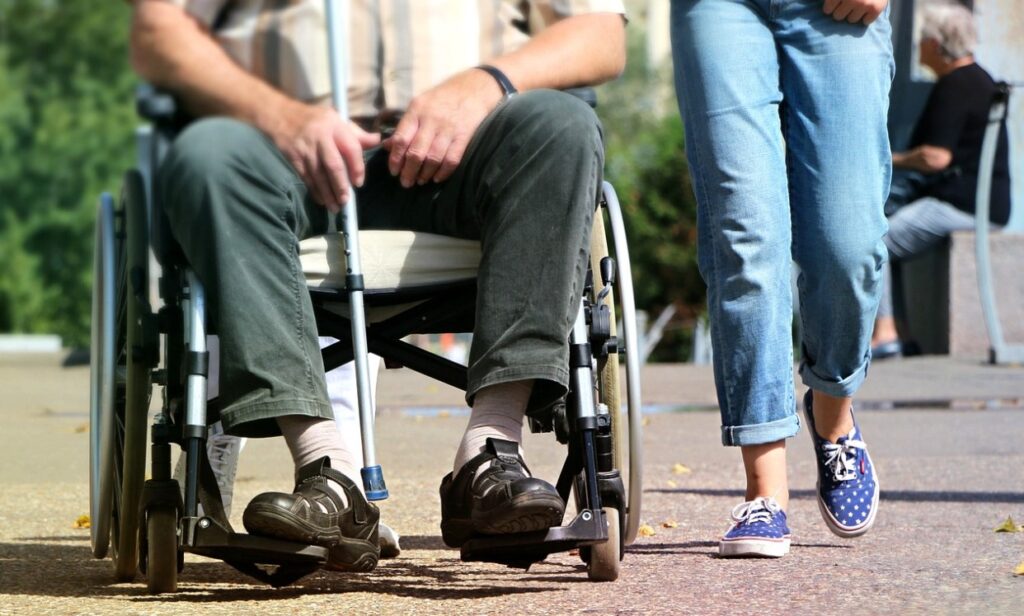With approximately $1.8 Trillion dedicated to citizen welfare between 2020 and 2029, the Social Security Disability Insurance (SSDI) Program is the most prominent disability benefits program in the U.S. People falling within two notable categories – paying Social Security taxes to the Social Security Administration (SSA) and fitting the official disability criteria – may be eligible. In addition to SSDI, the Supplemental Security Income (SSI) Program also offers monetary support, with over seven thousand beneficiaries as of August 2023.
However, what happens if you’ve been denied SSDI but have received SSI approval?
SSDI benefits depend on work credit requirements. On the other hand, SSI is available to individuals with limited financial means, not taking into account work histories. If you haven’t worked and paid taxes for at least five of the past 10 years, it could be hard to qualify for SSDI, and an option would be to appeal.
This article will guide you through the differences between SSDI and SSI, the reasons for denial and approval, insights into the application process, and everything you can do in light of a denial.
Understanding SSDI and SSI

SSDI denials are not as uncommon as you might think. Applicants often have to appeal the process before reaching a favorable outcome.
However, if you’ve been considered for one program while rejected for another, there is a high chance you failed to meet a significant requirement for your preferred program. Let’s examine both programs below in detail.
SSDI Requirements and Reasons for Denial
An SSDI qualification would entail having worked a job where you paid Social Security taxes in addition to having a medical condition that fits into the SSA’s definitions of what constitutes a disability.
You will be asked five questions in particular that will be the preliminary deciding factors to determine your eligibility for SSDI. These questions will be about:
- Your current employment status
- The severity of your condition or your condition
- If your condition prevents you from working
- If you can continue previous work
- If you can do other types of work
If your income exceeds the 2023 limit set by the SSA for Substantial Gainful Activity (SGA), then you might be denied SSDI. A monthly average income above $1,470 and $2,460 for blind individuals means your disability does not qualify for SSDI. To get SSDI, you must either work without exceeding this limit or not work at all.
Moreover, your medical condition must be expected to last for about a year and prevent you from several physical activities that you may be expected to do as part of a normal job, such as walking, lifting, sitting, standing, or even mental activities, such as remembering.
Among the impairments listed by the SSA are those considered fatal, permanent, or unchangeable, or those expected to last a specific period before the disabled individual recovers. For the last category, you need to prove your disability is expected to last for a year and may last for another twelve months at the very least.
Some of the disorders considered for SSDI among adults are mental disorders, cardiovascular disorders, congenital disorders, cancer, immune system disorders, and more.
A list of impairments social security uses to evaluate children includes, but is not limited to, low birth weight and failure to thrive, special senses and speech, endocrine disorders, and those stated above. It’s important to remember that this list is not exhaustive. Your condition not falling within the categories mentioned within Lists A or B does not equate to you being declared fully fit. Your condition will simply be assessed further and be subject to other rules.
The disability process will then move on to an examination of your past work, specifically to determine if you are able to continue your former occupation. If your disability does not prevent you from continuing with a profession you have previously pursued, you will not be considered eligible for SSDI.
However, even if you can’t continue working in your former position and/or capacity, your condition, education, age, experiences, and skillsets will determine if you can pursue a new job. If it is possible for you to switch professions, your claim will be denied.
Social security also considers special circumstances, such as legal blindness, an individual who is a disabled surviving spouse for a dead worker, children with disabilities, and those wounded in war, or veterans.
SSI Requirements and Reasons for Denial
SSI is meant for individuals with little to no income; you may be eligible for SSI if you cannot or do not earn over $1,913 per month by working.
The SSA will investigate more than just one source of income to check for your eligibility, such as disability benefits, pensions, and unemployment. You can calculate the income limits placed on different types of people by checking your monthly income through work before taxation against the income limits.
For the most part, SSI caters to individuals who have few resources to their name, for instance, savings, or money in the bank. Couples with less than $3,000 in assets, individuals with less than $2,000, and parents applying for their children with less than $2,000 are eligible for SSI.
Moreover, if your disability impacts your work, will lead to death, and prevents you from carrying out daily activities while you’re 65 or older, you might qualify for SSI. However, there’s a caveat to consider here; individuals older than 65 years of age do not need a disability to receive SSI.
Understanding How Denial Works and What to Do

Now that you understand the basic qualifying criteria for SSDI and SSI, we can delve into all the reasons why you could have been denied SSDI and what steps to take next. As mentioned above, this is most likely because of insufficient work credits and/or working history.
Work Credits
The Social Security work credits you receive depend on your annual wages or whatever income you have generated over the year through self-employment. An individual can earn up to four credits every year. For 2023, to obtain one credit, you would need to earn $1,640; for 2024 you would need to earn $1,730 to earn one credit.
Your work credits and subsequent tax payments help determine your eligibility for more than just SSDI. Retirement, Medicare, and any survivor’s benefits your family could apply for in the event of your passing would also be contingent on work credits and social security taxes.
For SSDI eligibility, you would require a recent work test and a work duration test. These are subject to your age. For instance, you can qualify with six credits earned over a 3-year period, if you are under the age of 24.
You might be eligible for SSDI if you’ve worked around half the time between when you turned 21 and when your disability began. For instance, you would need to have worked for 3 years if your disability began at age 27, out of the 6 years between ages 21 and 27. This would equal 12 credits. If you are 31 years old or older, you need to have a minimum of 20 credits earned in the last ten years prior to when your disability began.
However, keep in mind that not all kinds of work will count towards Social Security benefits. For instance, children below the age of 21 performing household chores for a parent do not count unless they are above 18 and working in their parent’s business. Some state and local government employees do not opt for social security.
If you believe your work credits should count towards SSDI or make you eligible, then you need to review your documentation. You need to fill out the Wage and Tax Statement, otherwise known as the W-2 form handed to you by your employer. The SSA compares your Social Security Number on the form with their own records. The earnings you display on the W-2 are recorded as part of a permanent record. This record is used to determine your benefit eligibility as well as the amount of benefits due.
One way you may be able to change your denial is through an appeals process, which involves ensuring your records accurately reflect your correct social security number, work history, employer, and the SSA. You can rectify any mistakes with your employer and contact your Social Security office for help too. If you are self-employed, you must diligently report your income and file taxes.
All in all, you would need to work for a certain duration and pay Social Security taxes to qualify for SSDI.
Evidence and Appeal
Evidence for an appeal would include all sorts of documentation, for instance, medical evidence and the tax and employment records mentioned above. If you are a disabled individual, you need to ensure your application contains every single piece of medical evidence that would support your claim and ensure a favorable decision.
Other than proving your disability, the records must contain sufficient evidence of disruption in your ability to work resulting from your disability, particularly in terms of duties you can perform. Your records must show a clear diagnosis, verified by a doctor’s signature, and a statement on your condition interfering with your ability to work. This will especially work if your doctor has written notes excusing you from certain work activities or has instructed you to take time off from work.
Ensure that any such evidence is contained within your application, particularly your appeals process. This leads us to one common mistake applicants make that decreases their chances of being approved for SSDI. Ensure that you file an appeal process rather than starting an application process from scratch.
As stated above, the lack of evidence rather than not meeting the eligibility criteria is usually another reason behind a denial; if you start a new application, you may be rejected for the same reasons. On the other hand, given that an appeal contains a thorough review, you have the chance to strengthen your application.
The first stage of the appeal is known as reconsideration. When the SSA reviews your application, if you are denied again, you may appeal again. This time, a judge will review your application. You will be asked to testify and speak about your disability. At this stage, it may be helpful to hire a disability lawyer who will help prepare you for your appearance before the judge.
The appeals process will continue into two more stages that include an appeals council and the federal district court, both of which may require an attorney.
It’s more common for applicants to win a favorable decision at the court appeals stage as opposed to the initial stages, which usually result in denials.
What is The Difference Between Successful and Denied Applicants?

Studies do show differences exist between applicants who are denied SSDI and those who receive it. For instance, approval would obviously mean monetary compensation, retroactive payments if you’ve been disabled and unable to work during your application process or longer, and low-cost health insurance, such as Medicaid or Medicare.
Successful recipients also receive support if they wish to return to work through programs such as the Ticket To Work program.
On the other hand, denied individuals are usually not offered any such support, although the SSA is attempting to determine if denied applicants can be encouraged to become a part of the workforce and if improvements in health can be maintained through SSA support.
However, around 52% of denied applicants report trouble if they need to stand for over an hour, and a further 54% report issues when kneeling, stooping, and crouching. A staggering 44% report feelings of depression and anxiety.
In comparison, around 66% of successful recipients report difficulty standing for over an hour, with 69% experiencing difficulties when kneeling, stooping, and crouching. Around 46% report depression and anxiety.
Conclusion
Being denied SSDI is not necessarily a final verdict, as many people are denied the first time they apply for benefits. As long as you have sufficient work credits, medical evidence, and can prove your eligibility to the SSA, you will be able to overturn the verdict and potentially receive your preferred disability payment. At the same time, keep in mind that being approved for SSI but not for SSDI is better than not being approved for either benefit.



2 Responses
I applied for disability and after four years was approved, I was also approved for ssi. I never applied for ssi. Who. Did and when ? TY.
SSI requires a separate application from SSDI, as it has different eligibility requirements focusing on household income and assets. While you may have been approved for both programs, the SSI application would have required its own paperwork and review process. If you don’t recall completing an SSI application, we recommend contacting the Social Security Administration to review your case history and confirm when and how the SSI application was submitted.
You can contact Social Security at 1-800-772-1213 (TTY 1-800-325-0778) or visit your local Social Security office at http://www.ssa.gov/locator